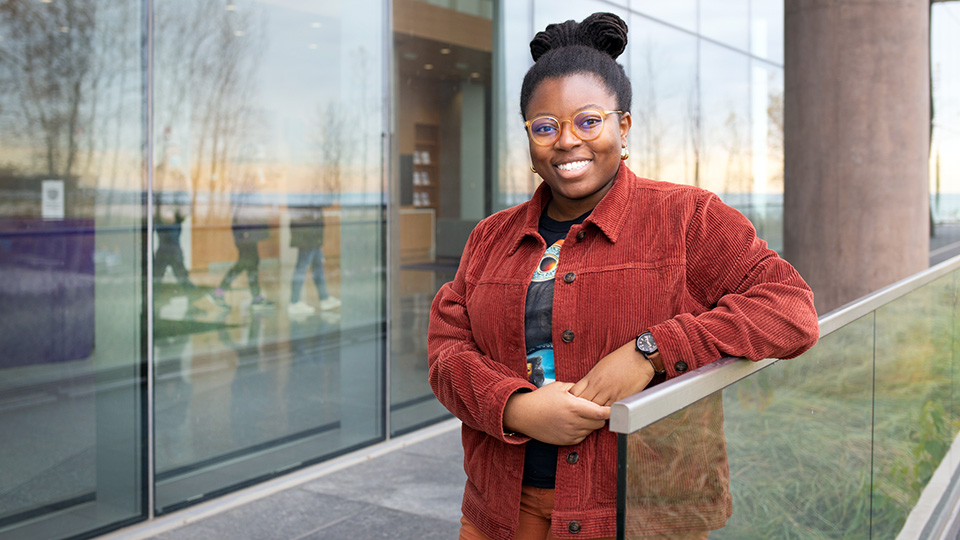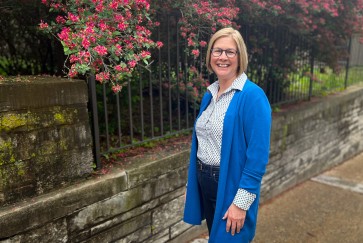Brittney Thompson is a first-year graduate student in Northwestern’s School of Education and Social Policy. She is working toward a master’s degree to become an environmental science teacher after studying environmental science and sustainability at Cornell University. In her spare time, Thompson serves as the graduate assistant in the One Book One Northwestern office, planning and coordinating events around “The Story of More: How We Got to Climate Change and Where to Go from Here” by Hope Jahren.
Originally from Atlanta, she has spent her first quarter in Evanston learning — and unlearning — the various forms environmental education can take.
Northwestern Now discussed with Thompson how science goes beyond the walls of the classroom and how she first came to engage with environmental science.
What does environmental education mean to you?
Courses in environmental science push students to think about the mechanisms of humanity. Studying the environment is not just the study of forests, but of city infrastructure, the price of childcare and the practices of our judicial system.
What has it been like to continue your education through COVID-19?
It was never my plan to work toward my master’s degree during a pandemic. But this is a great time to take note of how the world deals with science education, social systems and communication.
Why did you join the One Book program?
By the end of my undergraduate years, I became interested in how the scientific community communicates science to the public, which is at the heart of Hope Jahren’s book. I began my job search considering those spaces through which young people first engage with science. This led me to an outdoor education center and a zoo for a little bit, working with children from kindergarten through high school, as well as adults. Moving from outdoor education to the traditional classroom was a way for me to expose myself to the different ways we communicate science. And this simultaneous study and practice of science communication is something I hope to continue throughout my career.
Do you have ideas about how to address climate change?
Starting from a place of genuine care for myself and all other people and things really provides me with a regenerating energy to support me through learning about environmental issues and dealing with inevitable setbacks.
True climate solutions start when individuals within a community join together to see what their own needs are. And the people and institutions who’ve systemically taken from others give useful resources without interest in a return on investment.


